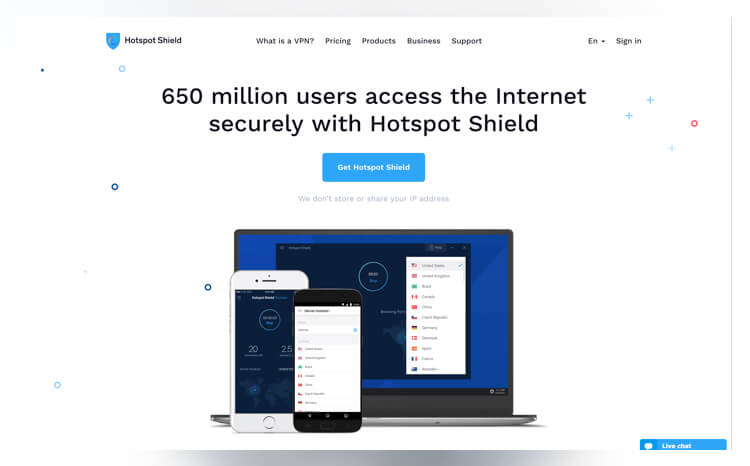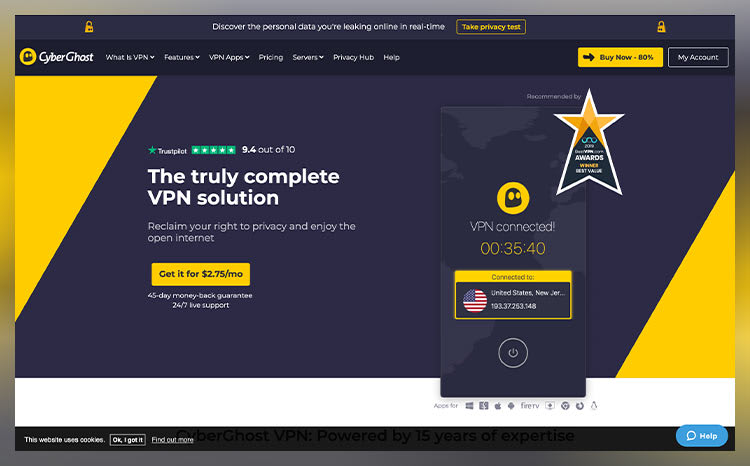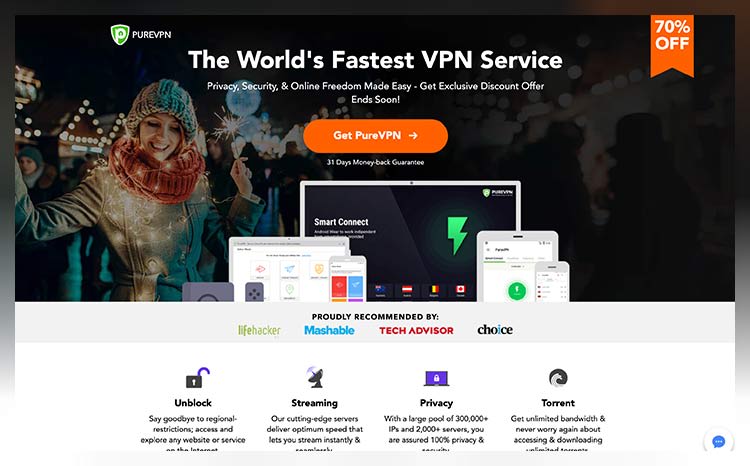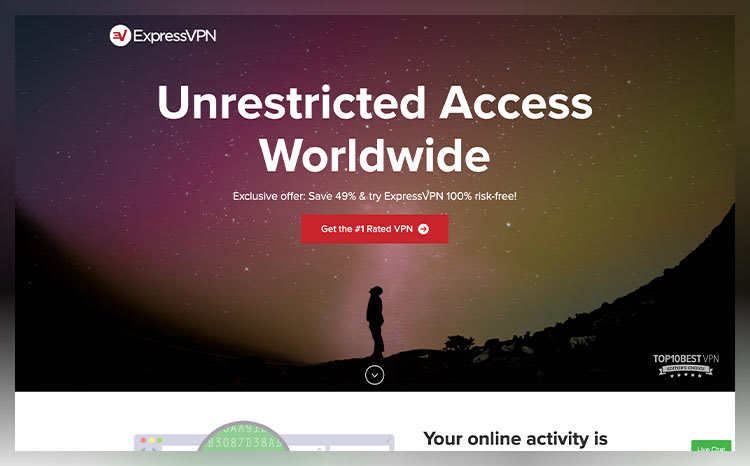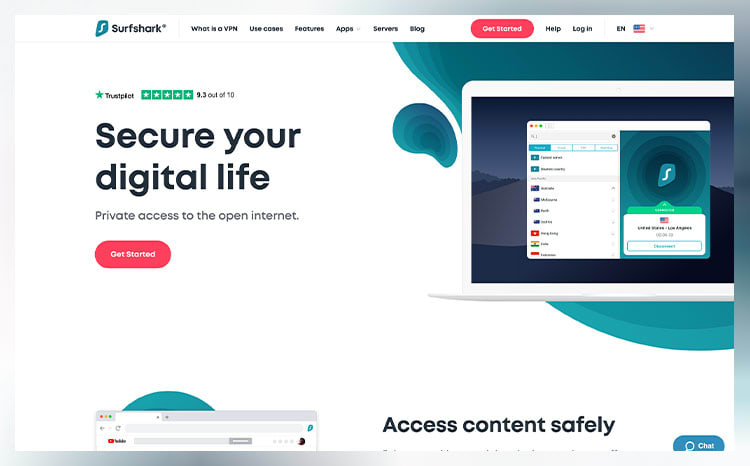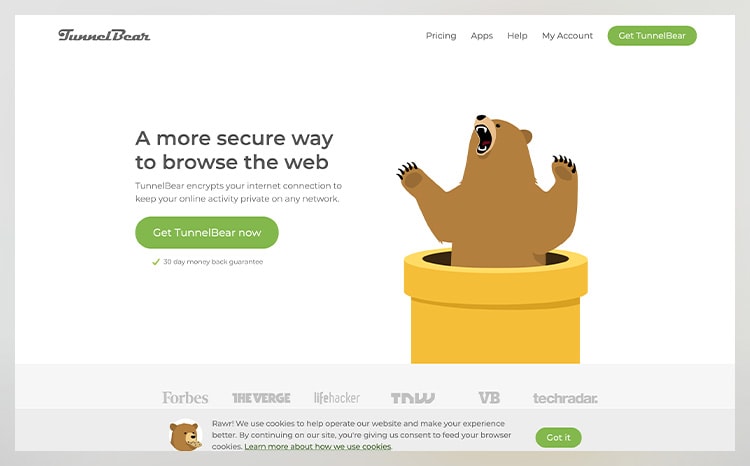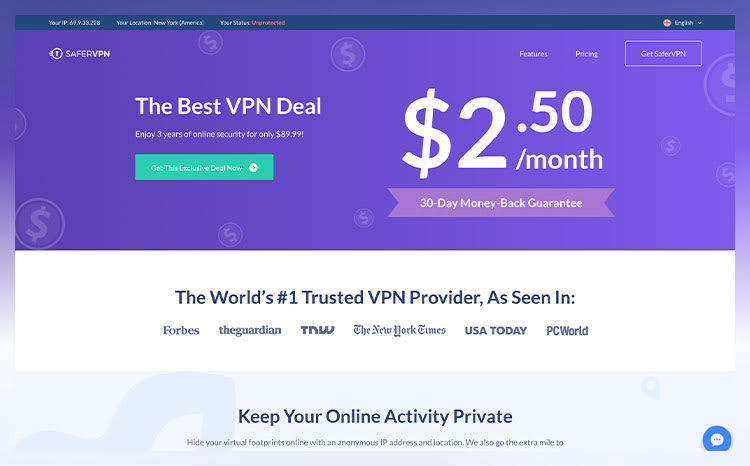How Does a Chrome VPN Work?
VPNs have servers located all over the world that allow you to appear as though you are browsing the internet in another country. Though many VPNs are known to be slow and heavy, Chrome VPNs are known for their speed. They also have a reputation for being easy to set up and use. Top-notch services, such as those listed above, also have high encryption standards and trustworthy privacy policies, as well as malware protection. It’s important to note the difference between Chrome VPNs and Chrome VPN extensions, which don't necessarily offer these top-notch services. We’ll discuss the differences later on.
Setting up a Chrome VPN
Setting up a VPN is quick and simple. Here's a step-by-step guide for those who need one:
- Select a Chrome VPN from any of the top 5 recommendations below.
- Subscribe to the service you determine best suits your needs.
- Download and install the VPN.
- Login using your username and password.
- Select a server in the desired location.
- Connect to your VPN and start browsing the internet.
What Can You Do with a Chrome VPN?
VPNs are useful for a wide variety of internet activities. After installing a Chrome VPN, you'll be able to watch foreign TV channels, sports competitions, or other channels restricted by any geographic region. You'll also be able to browse anonymously, and ensure protection from data collection from your ISP while browsing online. That includes hackers looking for unsuspecting victims on public WiFi. If you pay for a VPN solution with strict privacy policies, you can also rest assured that your ISP isn't able to collect data about your login times and activity.
Chrome VPN Extension vs Chrome VPN
There is a significant difference between Chrome VPN and a Chrome VPN extension. A Chrome VPN extension is a proxy or an intermediary, not an actual VPN. Whereas a VPN app works at the operating system level and encrypts all traffic, a VPN extension is more limited. It does not encrypt all traffic that enters and leaves the device you are using, whether it be a PC, laptop, or mobile device.
For example, this means that a Chrome extension may help you overcome some geo-restricted content through your browser, but it will leave your apps, games, and any other activity on your device unprotected. Contrast this to a VPN, which essentially works from the foundation up and encrypts all the traffic no matter where it moves through.
The main advantage of extensions is that they are almost always free, while VPNs are paid subscription services.
What You Need to Know About Free VPN Services
Free VPN services, such as Chrome VPN extensions, offer a service that isn't as secure as leading paid VPN services. Chrome VPN extensions are proxies, rather than full service VPNs.
Free services are also slower than paid ones, since they share space with other free users, whereas paid services reinvest that money into more servers and higher bandwidth. Free providers often skimp on service, are filled with ads, and their servers may be down occasionally.
Will Incognito Mode Really Keep Me Invisible?
Most browsers these days offer an additional privacy mode that goes by different names: Incognito Mode in Chrome, Private Browsing in Firefox, Private Window in Safari. While incognito mode will keep the pages you’ve visited hidden from your search history and cookies, it does very little to secure your activity from larger tracking parties such as your internet provider or governmental agencies.
According to an interview in The Independent with a developer for Chrome, this is the reason they opted to call it incognito mode rather than the misleading “privacy mode.” Using incognito mode does not make you invisible to your internet provider or other prying eyes. Incognito mode does serve a purpose, albeit a more localized one: it’s helpful in keeping your activity hidden from others who use your computer. But it does little to make you anonymous the way a VPN does. Anyone who wishes to keep their identity hidden across the board should not rely on Chrome’s incognito mode, but instead should invest in a VPN as it’s the best full-proof way to hide yourself from prying eyes both on a small and large scale.
Get Started With a Google Chrome VPN
There are many Chrome VPNs on the market offering fast connections, iron-clad security and reliable privacy policies. We've reviewed the top VPNs here in order for you to make the best choice depending on your needs. Remember that there are differences in the speed, security and reliability of their privacy policies. If you’re concerned with your privacy, understand the differences in security that different solutions offer, and the price you pay for better protection. Regardless of the VPN provider you ultimately choose, this guide will help you choose the best one for your needs.
You might also like:
Hotspot Shield boasts a free Chrome extention as well as lightning-fast speeds and a large network of servers, and is generally considered one of the better VPNs to use with Chrome.
No. To use a VPN with Chrome, you must use a VPN provider such as Hotspot Shield or CyberGhost. However, many VPNs do have a Chrome extension that make it easy to use a VPN on Chrome.
To enable a VPN on Chrome, simply open the interface of your VPN provider, sign in, and choose a network location. The VPN should connect you automatically, and then you're free to browse on Chrome.










